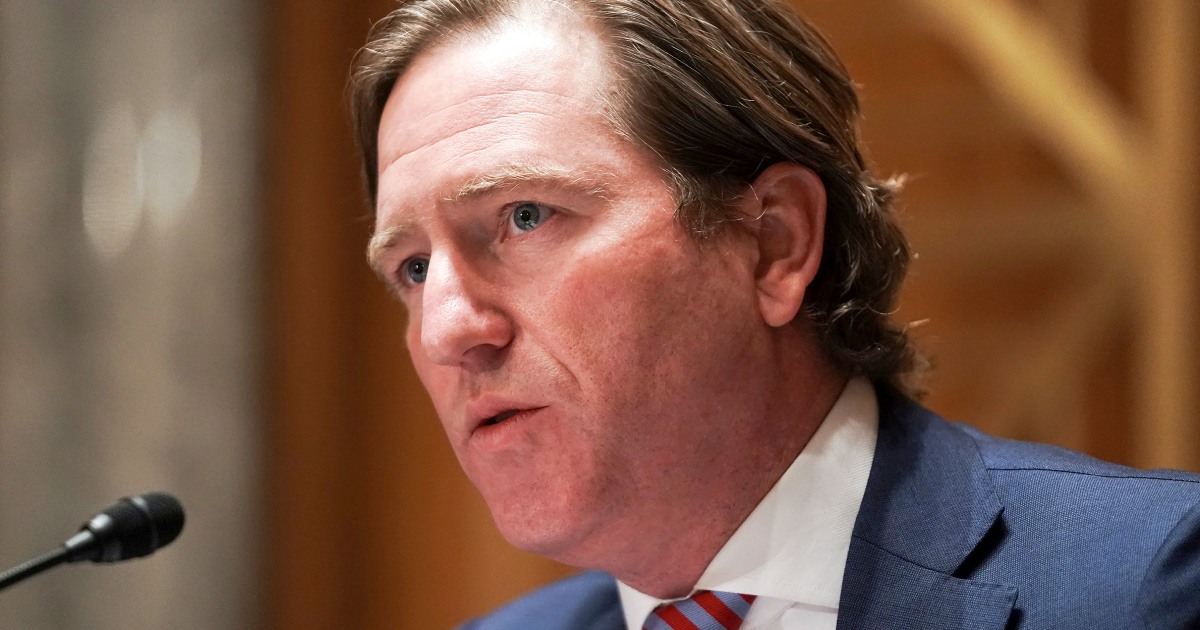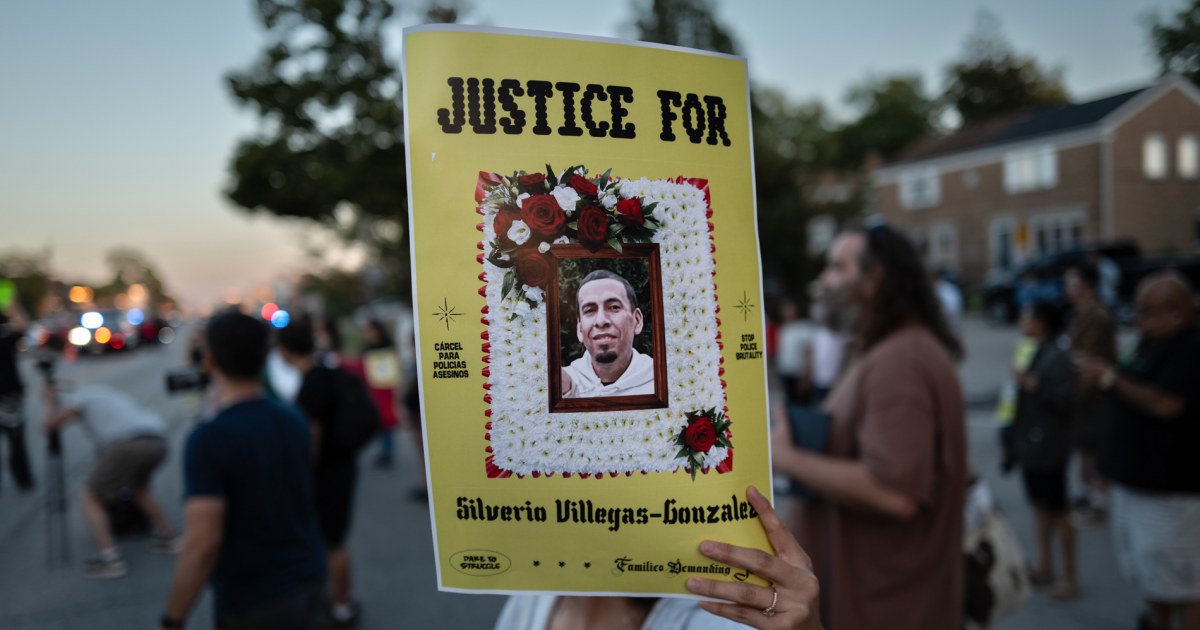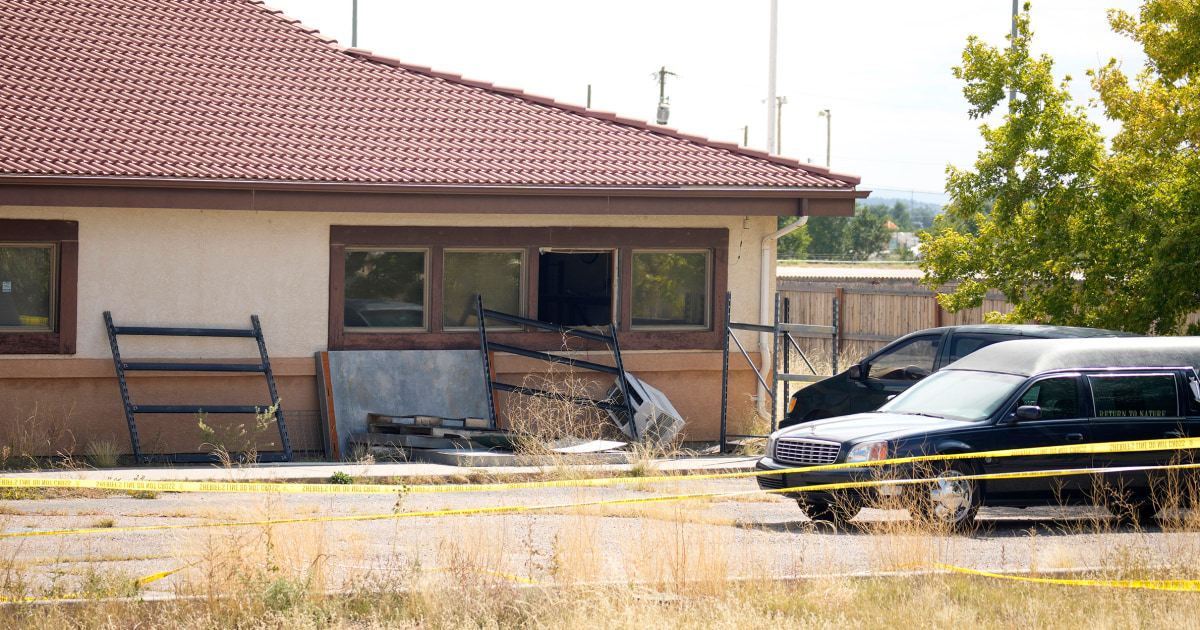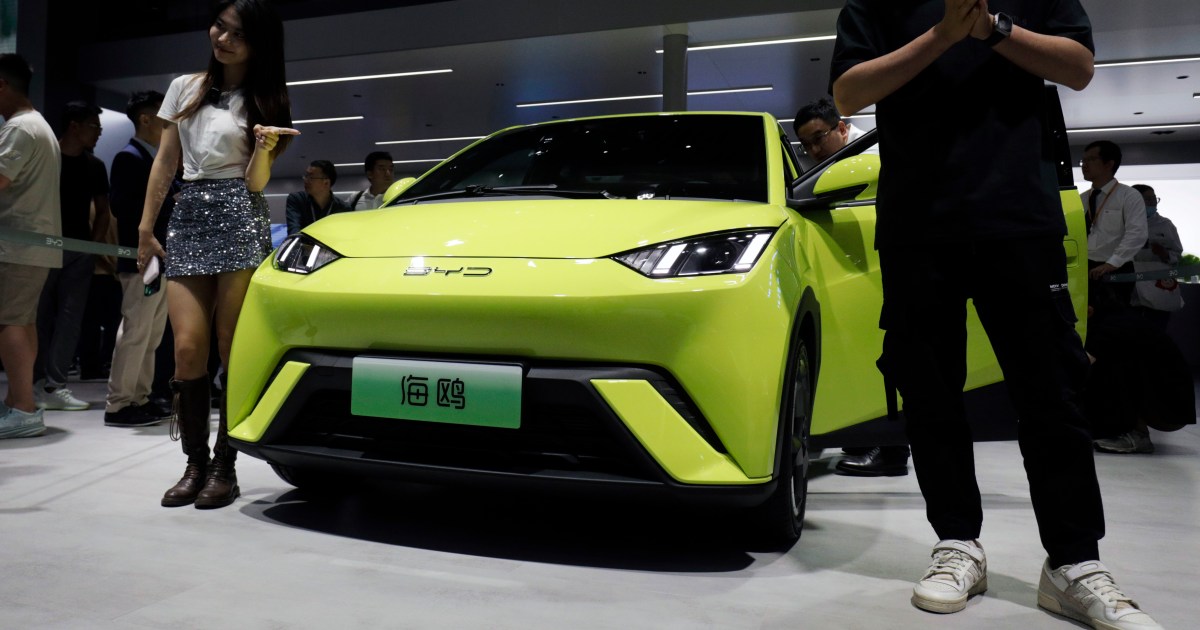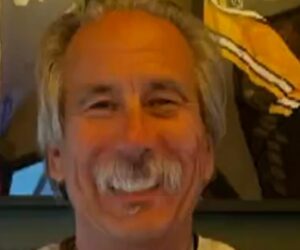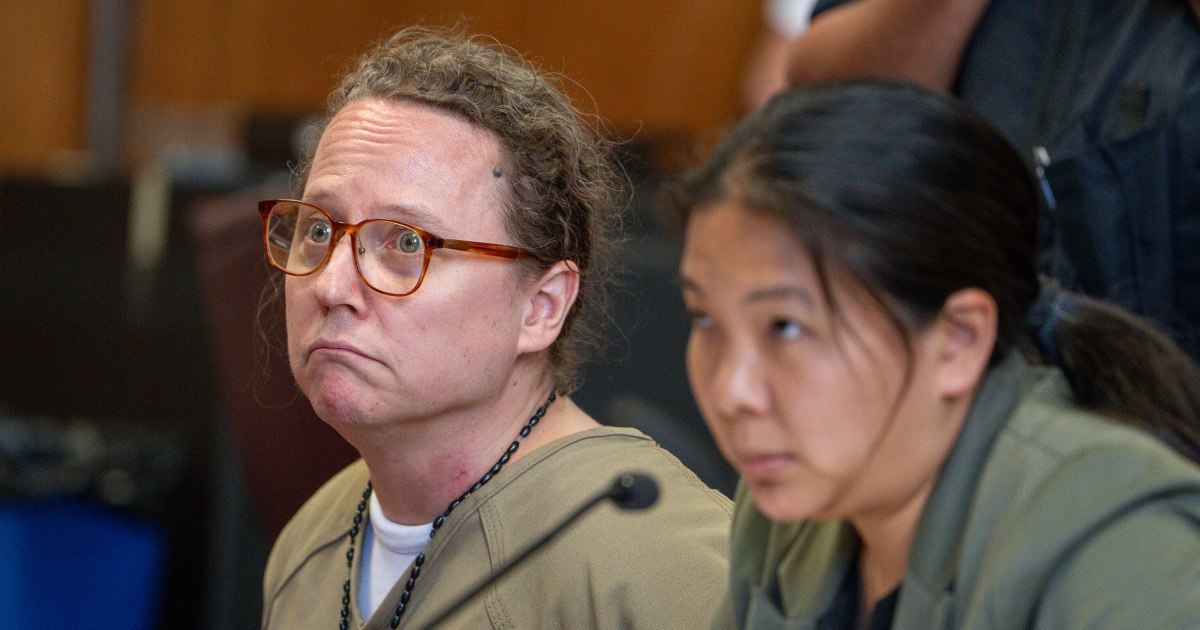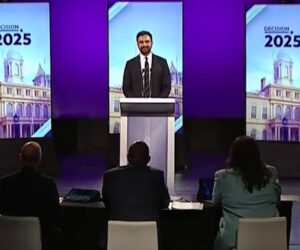ROME — Vice President JD Vance shuffled between presidents and prime ministers this week, tending to complicated relationships with U.S. allies and puzzling over two wars.
But it was his meeting Monday with newly installed Pope Leo XIV that could prove to be most consequential on the world stage, Vance said in an interview with NBC News.
As his SUV limo sped to the airport here at the end of a three-day trip centered around the first U.S.-born pontiff’s inaugural Mass, Vance spoke of Leo as a key potential partner in President Donald Trump’s efforts to broker peace between Russia and Ukraine and in other conflict areas.
“We talked a lot about what’s going on in Israel and Gaza. We talked a lot about the Russia-Ukraine situation,” Vance said of the nearly hourlong audience he and Secretary of State Marco Rubio had with Leo. “It’s hard to predict the future, but I do think that not just the pope, but the entire Vatican, has expressed a desire to be really helpful and to work together on facilitating, hopefully, a peace deal coming together in Russia and Ukraine.”
Vance, who is Catholic, said he found the pope to be “extremely sweet.” He described their conversation as substantive — a promising sign given how Leo had, in his previous service as a cardinal, signaled disapproval of Trump administration immigration policies. Hours after the audience, Trump issued a social media post suggesting Leo could be helpful in the Russia-Ukraine talks.
“We have an American pope of the world’s largest single religion — a guy who doesn’t have an army, but who I think has an incredible amount of capacity to convene and to influence, not just Europe, but, really, the entire world,” said Vance, riding in the backseat alongside second lady Usha Vance as their motorcade delivered them to Air Force Two for their return to Washington.
“I hope it’s the beginning of a very good relationship, because I think he does care a lot about peace,” he added. “If there is a single most productive thing [from the trip], my hope is that it will be that the relationship between us and the Vatican leads to a lot fewer people getting killed and a lot less humanitarian disaster.”
In a statement, the Vatican acknowledged “an exchange of views on some current international issues, during which hope was expressed that humanitarian law and international law be respected in areas of conflict and that there be a negotiated solution between the parties involved.”
This week’s diplomatic efforts underscore the large foreign policy role Vance has carved out in Trump’s administration. Trump has shown a limited appetite for travel in his second term. The president’s recently completed Middle East visit was his first major overseas trip and only his second when counting his attendance last month at Pope Francis’ funeral, where he met with Ukrainian President Volodymyr Zelenskyy.
Vance, who met briefly with Francis the day before his death, has now been to Italy twice as vice president. He has also visited India, represented the White House at conferences in Paris and Munich and touched down in Greenland to reinforce Trump’s interest in annexing the island from Denmark. And the White House nearly sent Vance from Rome on a last-minute mission to Israel — which Trump skipped on last week’s tour — but said the logistics could not be worked out in time.
“I don’t think there’s a particularly deliberate strategy of him traveling less or me traveling more,” Vance said, weighing his globetrotting against Trump’s. “I just think it’s kind of the way it’s fallen.”
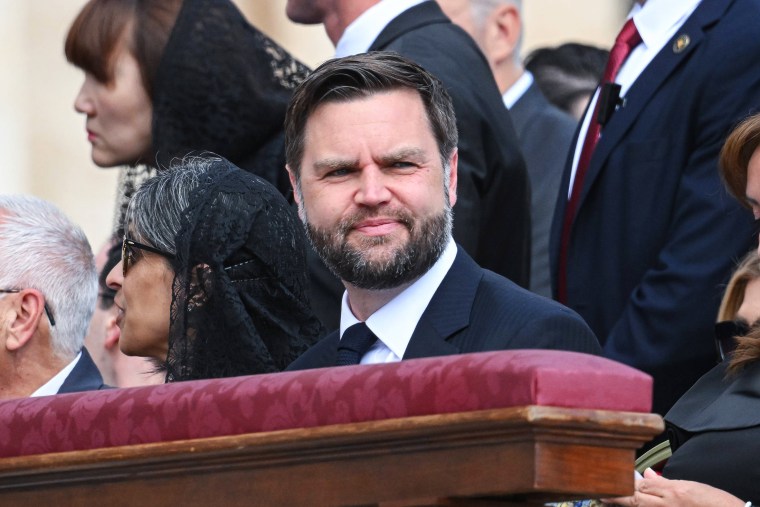
But Vance acknowledged that he has been given a broad portfolio and wide latitude.
“I definitely think the president has a lot of trust in me, and I’m honored by it, and I think it makes me a more effective vice president,” Vance said. “A lot of people always asked me between the election and the inauguration: What would my role be? I would always say … I think it’ll be being an extra set of eyes and ears for the president, doing the things that he thinks that I need to do, and that’s largely how it’s worked out.”
There was plenty for Vance to do in Rome.
After Sunday’s Mass, he and Rubio hosted Zelenskyy at the U.S. ambassador’s residence here. A February clash between Vance and Zelenskyy in the Oval Office seemed like a distant memory when the vice president’s office released a statement about “their shared goal of ending the bloodshed” and a photo of the two leaders smiling.
From the Zelenskyy meeting, Vance hustled to Chigi Palace, where Italian Prime Minister Giorgia Meloni had brokered a meeting between Vance and European Commission President Ursula von der Leyen. The sitdown was framed as an opportunity for constructive dialogue at a time when Trump’s tariffs and Vance’s adversarial posture toward European leaders have rattled the Continent.
“Obviously, the president has had some pretty tough words — I guess I have, too, pretty tough words for Europe — about the importance of opening their markets, but also the importance of doing more burden-sharing in defense,” Vance said in the interview. “And I would say that one leader that both of us have consistently found is a really helpful bridge between the United States and Europe is Meloni.”
Meloni, like Trump and Vance, is known for her far-right politics. Vance observed that she has two qualities that he believes make her a strong diplomatic partner.
“The first is that she’s a very, very good listener. So if you have two people who really disagree on something, she tries to understand where both of them are coming from, and she’s perceptive and insightful enough that she actually understands it,” he said. “The second thing is, she’s extraordinarily direct. She actually reminds me a little bit of Usha in that way, where she can deliver an extraordinarily direct message without coming across as offensive. That’s just a skill, right? There’s a skill in actually being direct with somebody, but not raising their guard.”
Vance also met Sunday with Canadian Prime Minister Mark Carney and with British Deputy Prime Minister Angela Rayner and Foreign Secretary David Lammy. He said his discussions with Carney centered on trade policy, a major issue between the U.S. and Canada.
Diplomacy to this degree wasn’t originally on the agenda for Vance’s return to Rome.
“When we first started sketching out the trip, I thought, oh, this is kind of nice. We’ll go to the papal Mass, Usha and I will have lunch afterwards, and just kind of take it easy on Sunday and fly home Sunday night or Monday,” Vance, who had just finished a leisurely lunch with the second lady, said before clarifying that he looks for opportunities to “do as much as I possibly can” on taxpayer-funded trips overseas.
“It was a very personally rewarding trip,” he added. “Once you’re here and there are all these other world leaders here, you might as well try to try to sit down with them and talk to them.”
Vance’s expansive role has placed him alongside Rubio, the administration’s chief diplomat, as a face of Trump’s foreign policy. The president stoked speculation of a 2028 rivalry between the two earlier this month when, in an interview on NBC News’ “Meet the Press,” he suggested both as potential successors.
At the time, allies of both Vance and Rubio dismissed any notion of competition or friction. Vance did so himself Monday, mentioning a recent conversation with a political consultant.
“I can just feel it — the media is going to start telling some story of me versus. Marco or me having a rivalry with Marco,” Vance recalled telling the consultant.
“Most of the time,” Vance said, “I don’t give a s— about this stuff. I don’t even think that much about it.”
He and Rubio, Vance added, talk five times a day — “on a light day.” If there’s a call Vance knows Rubio will be on, he said, he knows he can skip the call and catch up with him later.
“That’s the level of trust and confidence that I have in Marco,” Vance said.
“My attitude is, if I do end up running in 2028, I’m not entitled to it,” he continued. “But I really think that Marco and I can get a lot done together over the next few years. That’s how I think about our friendship and our relationship. And I would be shocked if he thought about it any differently.”


